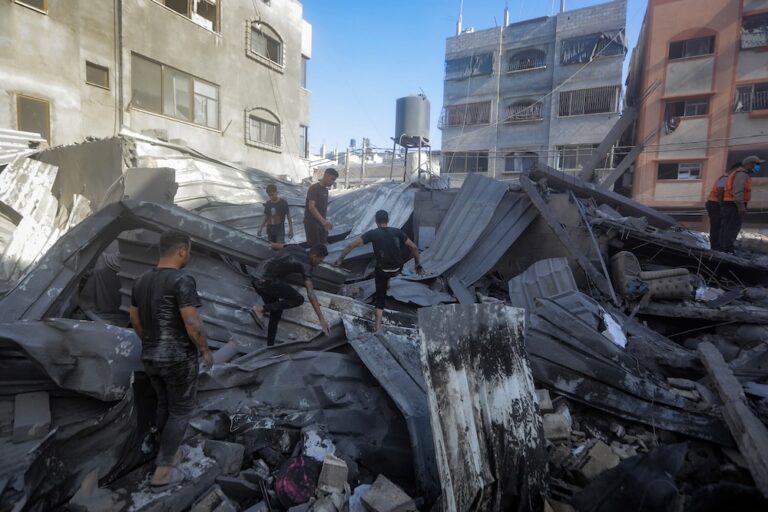(RSF/IFEX) – RSF has expressed alarm over new rules for accrediting journalists that are expected to be introduced shortly in Israel. Under the new rules, journalists will have to be cleared by the Shin Bet state security service. RSF described the new rules as a serious threat to press freedom and a flagrant violation of […]
(RSF/IFEX) – RSF has expressed alarm over new rules for accrediting journalists that are expected to be introduced shortly in Israel. Under the new rules, journalists will have to be cleared by the Shin Bet state security service. RSF described the new rules as a serious threat to press freedom and a flagrant violation of journalists’ rights, and called for their cancellation. The new rules, which are to take effect on 1 January 2004, apply to all journalists working in Israel, including foreign, Palestinian and Israeli journalists.
“Having Shin Bet approve applications for press cards is totally undemocratic and harmful to press freedom,” RSF Secretary-General Robert Ménard said. “Israel is already the only democratic country where such cards are issued by a government agency rather than by elected journalists’ representatives.
“Now, for alleged security reasons, the authorities want to decide who can or cannot work as a journalist and therefore bar some Israeli and foreign journalists from covering the Palestinian conflict,” Ménard added.
When contacted by RSF, several Israeli and foreign journalists described the new rules as a “dangerous,” “pathetic,” “hypocritical” or “anti-freedom” attempt to gag the media.
Some of the Israeli journalists contacted by RSF said the kind of information requested by the Government Press Office (GPO), such as the name of an applicant’s grandfather or a description of the topics a journalist would cover, is excessive. They are also outraged that Shin Bet would become, in effect, the press card issuing authority, as it is a major Israeli institution subject to media scrutiny. Writing about the Shin Bet would now mean risking the cancellation of one’s press card when it comes up for annual renewal, the journalists explained, so the new rules would automatically lead to intimidation of the media.
A press card issued by the GPO is needed for reporting in the Palestinian territories, especially for passing through Israeli military checkpoints. As such, the GPO already holds arbitrary power, in the name of “security concerns”, over who covers the conflict in the Israeli-controlled area.
The new rules also increase existing discrimination against Palestinian journalists. Section 3H of the GPO’s new rules says, “Residents or citizens of an area in armed conflict with the state of Israel” will not be issued press cards. Since 1 January 2002, the GPO has refused to renew the press cards of the vast majority of Palestinian journalists, including those working for foreign media outlets.
A press card is not always demanded of journalists working for major Israeli media outlets, but foreign and Israeli freelancers must have one. GPO Director Daniel Seaman’s decision to reduce the number of press cards issued to Israeli journalists demonstrates the government’s intention to pick and choose who becomes a journalist on the basis of secret and even political reasons. This may penalise the left-wing and far-left media in particular.


